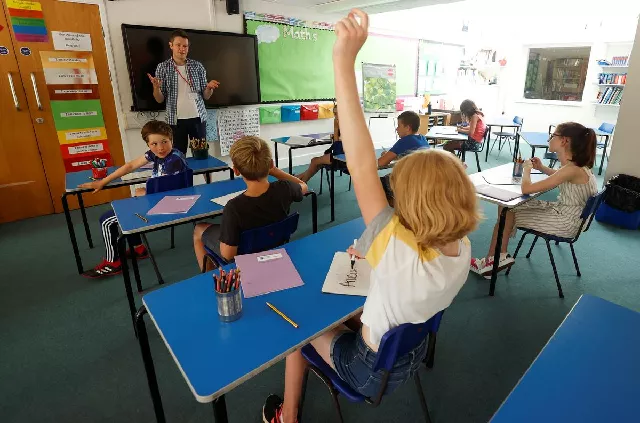Reopening of schools amid Covid-19
It is ironic that school health has remained an ignored domain in Pakistan
With significant drop in the Covid-19 transmission rate in Pakistan, the decision to reopen schools has been finally taken at the national level. Till date, the country has recorded 299,233 Covid-19 cases with children and adolescents less than 20 years of age constituting 10•6% (as of July 8, 2020) of the total. Unfortunately, the country was unable to enforce Covid-19 SOPs in their proper sense during the lockdowns. Therefore, the decision to reopen schools is encountering criticism as infection transmissibility even with lower rates among children is well documented.
It is ironic that school health has remained an ignored domain in Pakistan with lack of attention on hygiene promotion programmes. Provision of adequate physical infrastructure including water, sanitation and hygiene (WASH) has remained dismal, particularly in public schools. A 2012 UNICEF survey showed that 43% of all school toilets are non-functional and required major reconstruction. It is unfortunate that Pakistan still lacks a national plan of action for school WASH. A 2015 National Rural Support Programme study indicated that 80% of 396 government school toilets in Sindh are dysfunctional.
The situation is further worsened by the fact that Pakistan’s education system also suffers from lack of adequate space in school premises; up to 130 students are documented sharing a classroom in primary schools. Furthermore, UNICEF survey (during 2014-15) showed unavailability of drinking water in Sindh schools, as 53% primary schools are without drinking water stations, along with half of rural primary schools in Balochistan. Moreover, inadequate waste disposal practices at school premises also add to the list. The gloomy picture of existing infrastructure of government schools with an absence of action plans by the provincial educational authority for its refurbishment can pose serious threats to children’s health upon school’s reopening during the current wave of coronavirus pandemic. Also, heavy rain showers have further damaged school infrastructures across urban and rural areas.
It must be noted that the joint family system which prevails in Pakistan, where children are in close contact with at least a family member aged over 60, can potentially increase the likelihood of infection transmission in elders if schools are to be re-opened with inadequate attention on hygiene and safety measures.
There are numerous lessons to be learned across the world as how schools welcomed children with necessary measures in place. In Switzerland, the number of students have been reduced to 50% in classrooms in few schools, and in Germany and Japan, students have to attend school on alternate days. To avoid infection transmission among children, educational authorities in Denmark are conducting teaching sessions outdoor to maintain physical distancing. Schools in Liberia adopted the policy of hand washing with chlorinated water, with temperatures of children being monitored before entering the classroom.
There are no clear answers that reopening of schools will cause a surge of Covid-19 in Pakistan or not. It is therefore crucial that planning to open schools is carefully undertaken and strictly applied at the provincial and district level. There is a need for close coordination among health and education sectors during the pandemic which has never taken place in this part of the world; and also between public and private schools associations to draft detailed SOPs for school resumption, including exit and entry points for children and staff, adherence to SOPs, disciplinary actions against non-compliance, symptom monitoring of children and staff, strict adherence of hygiene measures, disinfecting school premises regularly, capacity building of teachers and sanitary workers on hygiene care, etc. Provincial governments must alter policies and procedures adopted by other countries to ensure safe return of children to schools in Pakistan.
Nousheen Akbar Pradhan is a coordinator for School Health Programme at AKUH. Email: nousheen.pradhan@aku.edu
Kashmira Nanji is a public health consultant and an AKUH alumnus. Email: kashmira.nanji@gmail.com
Published in The Express Tribune, September 9th, 2020.
Like Opinion & Editorial on Facebook, follow @ETOpEd on Twitter to receive all updates on all our daily pieces.


COMMENTS
Comments are moderated and generally will be posted if they are on-topic and not abusive.
For more information, please see our Comments FAQ